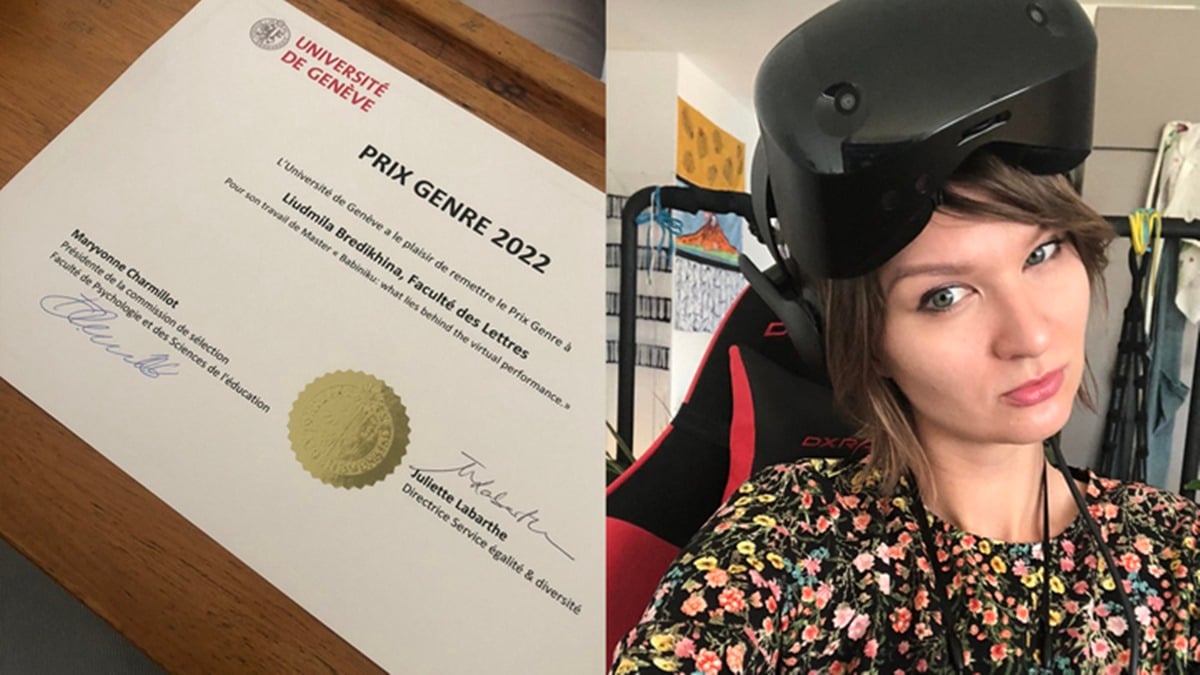Written by. Nick Mosier based on the original Japanese article (original article’s publication date: 2022-05-26 20:56 JST)
Swiss anthropologist Liudmila Bredikhina received an award from the University of Geneva in the gender category for their thesis titled “Babiniku: what lies behind the virtual performance. Contesting gender norms through technology and Japanese theatre.” This is the first time an academic award has been given for research into the subject of “Babiniku.”
“Babiniku” is an abbreviation of the Japanese phrase “baacharu bishoujo Juniku,” meaning something like “virtual incarnation as a beautiful girl.” The word itself comes from the VTuber community and refers to using a beautiful or cute female character as your avatar in virtual spaces. When using an avatar, the user’s gender isn’t called into question, and anyone can be a beautiful woman, or “bishoujo.” Babiniku is essentially the use of a female avatar online, and the process of receiving your body in the virtual world is referred to as juniku (incarnation).
Bredikhina’s research into the subject was conducted between November of 2019 and May of 2020, where they closely observed and analyzed the behaviors of users using a research method called “Ethnographic Fieldwork.”
“What meaning does babiniku hold in terms of art?” “What’s its relationship with Japanese theater?” “What’s the mentality behind a babiniku performance?” “What impact does performing as a beautiful girl have on gender norms in Japan?” The thesis looks into the subject from a variety of angles.

Bredikhina is also writing another thesis about babiniku alongside Agnès Giard titled, “Becoming a Virtual Cutie: Digital Cross-Dressing in Japan,” which was presented in March of 2022.
This thesis mostly focuses on males that partake in babiniku. One reason given for why males would perform as female characters online is that it allows them to escape from the masculinity expected in reality and gives them permission to be softer and rely on others.
One participant stated, “I am a human who wants to be protected, but that is not allowed in reality. I think I can express ‘kawaii’ by using the image of a character that I want to protect,” “kawaii” being a Japanese word meaning “cute.”
As a backdrop, Bredikhina also alluded to Japan’s economic stagnation since its bubble period of the 1990s. Working men in Japan are expected to be strong providers, even while feeling uneasy about their income, and not performing this role comes with a sense of failure. Within that uncertainty, using a cute avatar and putting on a cute performance can allow these performers to obtain a more positive self-image.
On the other hand, some participants didn’t seem to view their activities as gender related but said that it allowed them to reaffirm their worth as a human, unrelated to gender. Babiniku performers aren’t directly participating in discussions around gender, but by not recognizing classifications based on sexuality, they are challenging the societal norms around the subject.
It’s interesting to see research into the recent culture of “babiniku” and hopefully we’ll continue to see more research around our relationship with virtual worlds going forward.





